| Article ID | Journal | Published Year | Pages | File Type |
|---|---|---|---|---|
| 954180 | Social Science & Medicine | 2006 | 14 Pages |
Drawing upon qualitative interviews with monozygotic (identical) twins sharing 100% of their genes, and with dizygotic (fraternal) twins and singletons as control groups, this paper explores what it means to be genetically identical. (The twins interviewed were from the TwinsUK register in London.) In the context of the ongoing debate on human reproductive cloning, it examines questions such as: To what extent do identical twins perceive their emotional and physical bond to be a result of their genetic makeup? What would they think if they had been deliberately created genetically identical? How would they feel about being genetically identical to a person who was born a few years earlier or later? First, our respondents ascribed no great significance to the role of genes in their understanding of what it means to be identical twins. Second, the opinion that human reproductive cloning would “interfere with nature”, or “contradict God's will”, was expressed by our respondents exclusively on the abstract level. The more our respondents were able to relate a particular invented cloning scenario to their own life-worlds, the lower the prevalence of the argument. Third, for all three groups of respondents, the scenario of having been born in one of the other groups was perceived as strange. Fourth, the aspect that our respondents disliked about cloning scenarios was the potential motives of the cloners. Without equating monozygotic twins directly with “clones”, these results from “naturally” genetically identical individuals add a new dimension to what a future cloning situation could entail: The cloned person might possibly (a) perceive a close physical and emotional connection to the progenitor as a blessing; (b) suffer from preconceptions of people who regard physical likeness as a sign of incomplete individuality; and (c) perceive the idea of not having been born a clone of a particular person as unpleasant.
